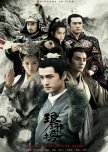
Sophisticated, intelligent and worth the effort
I’m not always in agreement with the ratings, but I think this one deserved its 9.1 (July 2025). It’s probably the best court intrigue I’ve seen and as it progressed it improved. The rough edges in the first episodes are generally smoothed out and a meandering plot delivers constant interest.In court intrigue dramas, with so much emphasis having to be given to moving the plot forward, the downside is that characters are often cyphers as there is no room for character development. But here, the imagination of the original writer is colourful enough to create a raft of interesting characters whose variety kept me interested and also helped me to distinguish between the cast of thousands. And time is taken out occasionally to allow for the exploration of the full impact of events on the main characters involved, giving them emotional depth and credibility.
The ML, Mei Chang Su (Hu Ge) is passive in every sense. Incapacitated by illness he sits like a spider at the centre of the web, spinning the events around him. We don’t see him actively finding information, but always passively receiving it. He is the eye of the storm and the original cause: all cyclones start by creating an eye. This quietness is reflected in the plot as well. Although there is plenty of action and gore, the predominant theme centred around moral action, justice and strength, so there is less emphasis on the superhero vibe and more attention on the unfolding of emotional layers in the characters.
The way that information is imparted is very clever. In a situation where every scene needs to move forward the complex plot lines, rather than repeating stuff in order to show the cascade of information, i.e. A tells B & C, then B tells D, and C tells E etc which is clumsy, repetitive and highly tedious. We see all those interactions happening concurrently in an interleaved way using short snippets of different scenes, with the information spread between the conversations. Beautifully efficient. Or we see a less obvious character deliver information and automatically assume the relevant main character knows it. The sophistication of the writing here is the thing that lifts this drama from tedious to fast paced and absorbing.
I love some of the fabrics used in the costumes. The textures and woven patterns of the clothes worn by the ML and lesser status bureaucrats are more beautiful in my mind than the elaborate silks of the court. The music too, is subtle and added to the period feel of the drama.. However the makeup is not good. Someone got slap happy with the orange and on too many occasions there was a Trump lookalike contest in which Nirvana in Fire came out the winner.
There are fantasy elements which did not convince, but they couldn’t really undermine what was done so well everywhere else. Look the fight scenes, what can I say? If you’re into that sort of thing then they’re probably spectacular, for me they provided a good laugh and some light relief. ‘Nuff said.
Was this review helpful to you?

Points for trying.
The plot sequentially introduces you to the suspects and invests in their stories such that you are drawn in to empathise with their choices. This is an approach which tends towards slice-of-life and resists the temptation to tell half-stories in order to either demonise or create saints. But it is at the expense of tension and suspense. On the whole the drama has a consistent pace which lacks the expected adrenaline hits, but makes up for it with a deeper characterisation than is normal for a crime drama. This is the strength of the drama and what keeps you watching.However, there are some insurmountable credibility gaps for me in the script, which often feels like a couple of naive wannabes imagining what grown ups do. It was in desperate need of a butt ton more research and a great deal of beefing up.
For instance, I’m totally underwhelmed by the credibility of the FL being the CEO. With her attitude she wouldn’t have survived the first 5 nanoseconds, let alone three years. A CEO of a large company is constantly beset by politics and aggression, both internal and external. The purpose of their job is to lead from the front, forge a path through the political crap and preserve the integrity of the business whilst moving the company forward. You have to be a fighter, not someone who bows down to internal critics and arrives at a crucial board meeting with nothing concrete prepared other than an apology, only to be saved by some random and an emotional plea. Give me strength… This one dug a hole as deep as the Mariana Trench in the believability stakes for me, which I found really hard to get past.
Then there is a load of stuff around the journalism sub-plot. Without going into spoilers it was so clumsy and obvious that in some places it just undermined the characters making them look unprofessional, incompetent or incapable of fulfilling the role the plot demands. Okay (maybe) in a let’s-suspend-our-disbelief thriller, but in something claiming cred in the slice-of-life stakes, it’s a real non-starter.
This type of stuff is totally unnecessary. Are the writers just incapable of writing a strong, competent female role? Because a good script writer will find credible ways to work their plot rather than undermining the belief the viewers have in the characters.
Oikawa Mitsuhiro was laughably awful as Goto, but otherwise there were some nice performances. The script really held back from plumbing the depths so all the characters were not too far from bland, but within that the actors managed to capture the empathy of the viewer.
If you want PP at its worst then you will find it in the costuming of the FL. Most of the time she looks like a frumpy sack of potatoes. Who wears this stuff? As her costumes all look suspiciously like mature age maternity wear for a fundamentalist sect I was wondering if Yoshitaka Yoriko was pregnant at the time. There are occasions when she wears a belt, however, it’s never tight and the dress looks 5 sizes too big, so I’m still undecided on that one. Imagine turning up for the shoot of Ep6 and seeing that black and white monstrosity hanging up for you to wear. You’d be seriously thinking about breaking the contract.
I began to really take appreciative notice of the soundtrack about half way through. The composer is Yokoyama Masaru and his entry on MDL lists a long history of composing for drama and film. Here, he uses an edgy, contemporary style, utilising synth, strings and pianos with a dash of atonal emphasis, non-melodic structures and gritty rhythms. It really helps to create some tension and provide an undercurrent of texture in a crime drama that has it’s focus elsewhere.
What my rating means: 6+ Some aspects of it were OK but it had serious flaws. It will pass the time but you can find something better.
Was this review helpful to you?

Beautifully crafted but ultimately lacking the magic ingredient to make it really great
There is so much to praise about this production. In particular the cinematography and soundtrack are outstanding. The acting is good, the characters are appealing but the requisite sparkle, which can only spring from a really great script with insightful dialogue, was lacking. It’s not that it was bad, rather that it was ordinary and it wouldn’t have been so noticeable if the rest of the production hadn’t really shone.The beginning in particular requires patience. If you need to be instantly captivated, forget this one. At the start it was pretty fragmented with nothing much to grab the attention. When you start writing a novel you can usually just dump the first two chapters because they are about writing yourself into the story and the first couple of episodes have that sort of feel. But persistence at this point will pay off in the end.
For the first third, many of the scenes are very short and there isn’t really enough personal interaction to pull you into the depth of the characters or reveal their uniqueness. The dialogue is sometimes quite fanciful and self-consciously poetic and is not always in keeping with the character speaking it. Time and effort is spent with the soundtrack and cinematography which would be better heaped on the relationship interactions. Imo, you need to engage the viewer with your characters from the get-go, then there will be time later for more emphasis on production values. There is not much to hold onto at the start and as a viewer I had to do a lot of work to generate the emotional connections. But later on it pays dividends as the actors slowly reveal the inner world of their characters.
I was not always convinced of the connection between the younger and older versions of the characters and it didn’t help that the actors playing the young versions, didn’t really resemble the actors playing the older ones. And neither did their character traits feel properly aligned. This is the fault of the director (who also wrote the script) as presumably the casts from different time periods didn’t meet each other on set.
Ok having said all that, let’s get into what was great about this drama.
Once used to it, I loved the interweaving of the past and present. The past shed light on the present and vice-versa and it was cleverly done by the author. At the start I was a little confused but soon settled into the structure of it. Memory loss again… which this time was put to good use and if it wasn’t such a hackneyed and clichéd trope I would have enjoyed the role it played here more. It was less of a plot device and more of an emotional device to create an unfolding of intimacy.
The soundtrack is something special, very thoughtful and inventive. There are so many different songs, many of them in English and the use of Bach’s theme from the Goldberg Variations is so poignant.
Beautiful cinematography. With a rich, deep, saturated colour palette in sombre blues and greys. Blue is the signature colour that runs throughout particularly in the clothes and the lighting. Replete with a liberal sprinkling of exquisite compositional set shots using carefully selected colour, form and space. There was also a clever use of aerial and space imagery and an absolutely stunning dance sequence.
The best performances came from Mitsushima Hikari and Satoh Takeru who added a depth of poignancy to the interactions that produced some beautifully moving moments. Overall, this is well worth watching and will leave you with a sweet taste in your mouth.
What my rating means: 8+ A great drama with interesting content and good writing, direction, acting, OST, cinematography. But didn’t quite have the requisite sparkle to bump it into my all-time fave list. Worth watching.
Was this review helpful to you?
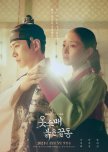
The oppressive cost of power and order
I’ve just binge-watched this show. I hadn’t intended to but I was caught up with it because I was fascinated by the focus on the limitations and demands of order. If you’ve come in hopes of a standard romance, then you may well be disappointed, because love is shown to be just another victim of the rapaciousness of order, flapping pathetically like a bird in a gilded cage. But hopefully the deeper and more thoughtful themes in this show will captivate your interest.The drama explores the necessities required by order to maintain itself. To sustain a cohesive society with all its factions it is necessary for the powerful to be bound. The necessity to prevent rebellion/chaos and maintain order is alive in every rule. Loyalty is the only currency. Loyalty is to the one you serve and once that person is dead, you are unceremoniously ejected from the seat of power as your loyalties are no longer fixed and therefore questionable. Everyone, including the king is bound by those rules and must follow them or pay a heavy, and often fatal, price. Within the confines of the palace freedom is the illusion that everyone craves.
The oppressive cost of power is explored through a number of characters, who deal with the shackles in different ways. Some scheme to undermine it, some scheme to try to create safety for their own group, some feign ignorance and keep their heads down, some scheme to gain unassailable power. The FL resists it, fighting to keep a tenuous hold on the fragment of autonomy that she has carved out for herself. Universally, everyone is forced to hide their true feelings and conform to what is required of their role. The suffocation of those endless formal bows and the life spent simply third in line, half bent over, in the small procession that follows the king everywhere he goes. But in the end there is only one way to survive, as one of the characters says, (paraphrased) “if you can’t beat them, join them and go with the flow”.
The role of women is particularly explored here and it is no surprise that the uniqueness of this drama is the result of a female perspective, both in terms of the writer and the director. If you liked the film “The Piano” (Jane Campion) then you will see echoes here of how sex and genuine love are used to “buy” relief from loneliness and the burden of responsibility, and the options available to women in response to those demands.
In terms of the acting, both leads were very convincing in their parts and were surrounded by a good supporting cast. The script was not outstanding in my opinion, but more than adequate to the task. It occasionally slipped into mawkishness, but also surprised in other places. In a drama that relied on the believability of the relationships, the plot lost me sometimes, particularly with regard to the letter and the kidnappings scenarios. However, I can credit that they were used to illustrate broader themes.
Overall this was a surprisingly good drama that far exceeded my expectations and gave me a lot to think about. Recommended!
What my rating means: 8+ A great drama with interesting content and good writing, direction, acting, OST, cinematography. But didn’t quite have the requisite sparkle to bump it into my all-time fave list. Worth watching.
Was this review helpful to you?
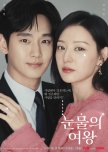
Everything-in-one-pan sort of comfort food.
I was trying to work out why this one blew up and got the attention it did. And I don’t think I was the only one, I think the whole company were probably a little surprised too. So what I came up with was that they managed to find the perfect recipe for how to appeal to the maximum number of possible audiences - a producer’s dream. And how, imo, did they do it?By cherry picking from all the genres and eliminating the potential bitterness before making a judicious blend of sweetness, with a twist of out-of-the-ordinary, that is just sufficient to stimulate almost everyone’s tastebuds. It has the ingredients of a melo without excessive wailing (well it does get a bit wet though, just note the title…); a romcom without cringeworthy comedy (mostly); a makjang without full-blown psychosis (just regular hysteria); a conspiracy without frustrating mystery (but a few too many conveniences), and a slice-of-life romance (plus free homilies) without the plodding reality.
It manages to be a very clever balance of light and dark. Nothing stands out as particularly noteworthy in itself, but put together it becomes great comfort food. Somewhat like all our beloved, over-rated national dishes that tempt the foreigner into disappointment because they expect Michelin stars and it turns out to be your grandma’s cooking.
Overall, it failed to really impress in the creatively inventive/awesome stakes but it delivered a solid script; credible good characters (aside from the ML being ex-special services, puleeeeease…he would have been breakfast); dastardly bad characters and some hearty performances, especially from the leads (and a personal favourite, the shameless rum flip, Grace, played by Kim Ju Ryoung). However it stumbled on the plot front probably because it had too many chickens on the rotisserie. It worked well until about episode eleven, but then the plot began to curdle in certain areas as the focus shifted more to the melo. By the last two episodes, it was shredded and went into makjang meltdown followed by a layer cake of all the genres piled on top.
So, to sum up, if you want the equivalent of a Jamie Oliver everything-in-one-pan sort of meal, you have found it. It’s finger-licking quality with good home grown meat and veggies plus a grating of cheese. Such a thing is hard to achieve so credit to those concerned. It’s the sort of comfort food you’re happy to come home to, but not up there for a gourmet night out or a revelatory culinary experience.
‘Nuff said. There’s already at least 6 pages of “reviews”, posted well before it finished airing!
Was this review helpful to you?
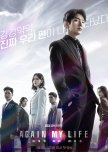
Return of the Jedi—may the Force be with you…
There’s a payoff between pace and depth, and here pace predominates. It skips along like a Y-wing starfighter over a planet, just kissing the surface before flying to the next bombing target. Skimming through multiple scenarios with the barest of detail; something that could occupy half a drama is dispatched in half an episode. It’s a fill-in-the-gaps-yourself style that reflects its origins in manga.There are also two ways of creating complexity: character depth or plot lines. After a fairly slow establishment, Episode 4 explodes sub-plots like a baradium thermal detonator, with an ever increasing cast of characters and no sign of any depth. From this point on the ML bounces between plot lines and the numerous character relationships float, sink or swim in the two seconds it takes for Lee Joon Gi’s lop-sided smile to fade. You need to keep up, as characters zip in and out like X-wing starfighters.
The drama is a no-holds barred attack on every form of corruption imaginable and some that you never even dreamed of in your nightmares. It features the master manipulator, Assemblyman Cho Tae Seob (come over to the dark side Kim, you know you want to) and his nemesis, Prosecutor Kim Hee Woo (may the force be with me, no I’m not a monster). However, for most of the drama, it’s all too easy for the Rebel Alliance to knock down the Galactic Empire with convenient information that just seems to materialise out of thin air, almost on the scale of “and here’s one we prepared earlier…” It’s all just far too convenient.
To really develop a proper struggle between the two sides you need time, and there is no spare second here, all of it is taken up churning through the multiple scenarios that seem a large price to pay to move things forward. Not that there is anything intrinsically wrong with this, it’s a choice that’s been made. The question is, having made the choice, do the writers and director deliver on it?
No they don’t. At the start there is a lot of wince-making stuff (more about that later) but as it progresses this mellows a bit (or I surrendered and ceased to notice it so much) and the script and direction create a drama that, for the first half, kept me interested and racing headlong into the next twist. But pacing and complexity are a tricky thing and for this drama, like many others, trouble really kicks in around two thirds of the way through, when the pace drops to establish the run-up to the finale. There is simply too much going on to be able to fully exploit every angle. Having manufactured twists in abundance, they are then left hanging for ages before being conveniently picked up again to serve some random purpose. Obstacles thrown in the way are about as troublesome as C-3PO on a good day and in the end there is very little bite. So much time is spent explaining the tangled threads and maneuvering heavy furniture into place (and believe it or not, introducing yet more characters and plot threads) that the tension gently leaks away and I was left sitting well back in my seat, drumming my fingers on the arm.
What do I mean by wince-making stuff? Well the melo at the start was badly handled, cliché, and painful to watch in all the wrong ways. Just because Lee Joon Gi can cry easily, and look pretty doing it, doesn’t mean he should be asked to do it at every available opportunity. LJG going back to being a teenager simply doesn’t work for me. He’s thinking like an adult, acting like an adult, looking like an adult. Just weird. Then there’s the continuous stating-the-obvious spoken thoughts (mainly by the ML but not exclusively) that are condescending and irritating in the extreme. Unfortunately this insult to intelligence continues to happen throughout the show. Lastly, a basic rule of writing: if you “show” do not also “tell”, which happens far too frequently and particularly involving the patronising asides just mentioned.
There might however be some excuse for the amateurish aspects of the writing as we appear to have two rookie writers overseen by the more experienced Lee Byung Hun (I have not seen any of the dramas he has penned).
Another cost to the cast of thousands/multiple scenarios choice is that time for the character development of the leads is minimal (if there is any at all) and we are left with meh, generic characters, indistinguishable from many that have come before them, and the thousands that will follow after them. And in the cast of thousands there were a number of supporting roles that did not contribute much to the plot and with a bit of imagination could have been omitted. In a fast paced, streamlined thriller, superfluity is a luxury.
Lee Joon Gi has said he wants to continue to do action dramas whilst physically he still can, and let’s face it he’s pretty bloody good at it. In the first half there are fights in every episode and they look pretty good to me but hey, I’m really not qualified to judge. It must have been why he chose this drama, because it sure wasn’t for the challenge of the main character who had little to distinguish him from the average. But, as “Flower of Evil” proved, LJG is an accomplished actor who can pull out a great performance when assisted to do so. Isn’t there someone out there who can write an intelligent action drama for him to star in, where his character possesses more than the emotional range of a teaspoon.
Lee Kyun Young did yet another repeat of Lee Kyun Young under another pseudonym. (Yawn) I don’t know why they don’t just film him with a generic name and part so that whenever a scriptwriter needs a corrupt politician/businessman they can just save time by slotting it in, because whatever they write, it will come out as the LKY stock character. Kim Chul Ki was slightly more subtle as Jeon Seok Gyu and could no doubt have given a vastly better performance as Cho Tae Seob than LKY.
There’s a peculiar touch of irony in my mind about the use of Gustav Holst’s music for “I vow to thee my country”. Holst arranged the theme from the “Planets Suite: Jupiter, The Bringer of Jollity” to suit the lyrics of a poem by Cecil Spring-Rice and created a hymn often sung on remembrance days. Although Jupiter is the primary god the Romans and takes care of society and its laws, I don’t think that the reference is intended for Jolly Jupiter, but rather the hymn about sacrificing everything, including one’s life, for your country. “I vow to thee my country” was written before the first world war and revised in the aftermath of it. Spring-Rice was a moustachioed paragon of a British Empire that espoused an attitude of paternal tyranny that pretty much aligns with the villain in the drama, Cho Tae Seob. Yet the music is the theme tune for the Rebel Alliance and usually pops up when Kim Hee Woo (Lee Joon Gi) is doing something magnanimous and honourable. (Lyrics and video here: http://www.songlyrics.com/choir-of-westminster-abbey/i-vow-to-thee-my-country-lyrics/)
As for the other music, even the Carmina Burana-esque flourish that occupied a slot in Ep 1 (at 8’ 35”) was forgiven when I heard the smokey tones of U Sung Eun on “Till the End” which was the only thing about the whole show that totally blew me away. Oh, except for the gorgeous valve amplifier (Ep 7) Jo Tae Seob uses to play the first movement of Beethoven’s Moonlight Sonata. My heart skipped a beat. I have a 1983 Pioneer SX-450 that I refuse to part with, it’s so damn sweet.
What my rating means: 5+ Meh! Don't bother, it's full of platitudes and clichés with boring characters and plots.
Was this review helpful to you?
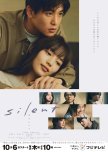
Amateurish production heavy on social education
It seems as though someone wanted to make a “socially aware” drama about the impact of hearing loss and impairment, but really didn’t have the skills in the field of story-telling and drama to pull it off successfully. I felt like I was being educated rather than entertained. Don’t get me wrong, I’m all for education and did find aspects of this production interesting and informative; but if education is going to come in the form of a drama, I’m looking for good dramatic structure, realistic dialogue and credible character interactions to carry it, such that it is woven in seamlessly. Otherwise, it would be better to watch a serious reality show/documentary about the lives of hearing impaired people.What’s positive? It was about ordinary people and presented in an ordinary way, so it was not offensive. I didn’t actively dislike it, but I’m having difficulty in finding stuff that I can be enthusiastic about. Okay, there were some touching moments that weren’t too sentimental…
Overall the drama had an amateurish feel to it; particularly regarding the script, editing and sound.
The script was particularly unconvincing. The characters constantly have unrealistic conversations about issues. It’s much better to show characters in their normality and let the viewer put two and two together for themselves rather than preaching and patronising. But that requires a level of writing expertise which was lacking here and I’m wondering if this was a first attempt by the writer. The scarcity of ordinary interactions meant that there was very little opportunity for the actors to create rounded characters.
The plot clunked it’s way through a variety of relationship scenarios that were not properly explored or given time and depth to be credible. The structure of the plot was also clumsy, with heavy use of long stretches of backstory that interrupted the flow.
I was not particularly impressed by the two male leads, Meguro Ren and Suzuka Ouji. I think this was partly the directing, which insisted on overcooking the melo with the ironic result that they seemed shallow and one-dimensional. Whereas Kazama Shunsuke, Kaho and especially Shinohara Ryoko were more impressive and believable in their roles. It was not helped by the fact that there were not enough conversations that were free from some aspect of hearing impairment education, so the relationships did not feel natural or credible.
The editing was really bad overall and especially the music, which was sometimes randomly and abruptly cut off so that you felt like you were aurally falling off the edge of a cliff. This could have been a really effective tactic to highlight point of view changes between hearing and non-hearing characters. And occasionally I think they did that. But not consistently or cleanly enough for me to be sure what their intention was. I was just aware of sudden abrupt changes in sound levels and focus that did not seem to be synced with character interactions.
Overall, meh.
What my rating means: 5+ Meh! Don't bother, it's full of platitudes and clichés with boring characters and plots.
Was this review helpful to you?
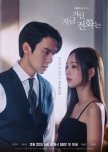
Good performances but laboured writing and overdone direction.
I really tried hard to talk up this drama, but it became increasingly hard and all my excuses eventually fell by the wayside. Compared to something like See You in My 19th Life, the plot held together reasonably well but was built around standard and somewhat tired tropes. The performances by the leads were good. You Yeon Seok did a good job of bringing subtlety to his tsundere character. And Heo Nam Jun as the villain, when he wasn’t being required to overact, was credible. But there’s the problem for you in a nutshell, the directing… the job of the director is to set the tone for the whole production, and direct the actors and cinematographer to harmonise with it. Here it was just too over the top. Melo on steroids.It had the hallmarks of a 1920s silent film, grandiose gestures, limp women and stoic men, dramatic low camera angles and slow leaden footsteps at every opportunity.
The cost of overplaying things is that it fails to capture you and attach you to the story and the characters. The problem with overhyped dramatisation is that there is nowhere to go, no room to build, it’s full on from the get go, and bye bye subtlety. With the result that instead of being moved I’m always at the point of laughter.
To make it believable you have to follow through on a set up. Too often the characters would not do the obvious in order to prolong the plot. The result is a lot of eye rolling, sighing and FFS exclamations for the viewer. Completely cutting through any credibility, but much more seriously, any sympathy for the characters.
The pacing was sacrificed to an over-detailed explanatory style, leaking tension all over the place. It needed less words and more faster paced action to fulfil its role as a thriller. Frequent, unnecessary repetitions of scenes in the editing did not help either.
The performances were good, it’s a pity that the directing, writing and editing were so laboured.
What my rating means: 6+ Some aspects of it were OK but it had serious flaws. It will pass the time but you can find something better.
Was this review helpful to you?
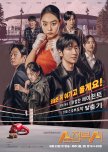
Individuality that grew on me as the show progressed.
At first I was not convinced by this drama, but it drew me in. Mainly because it told the story straight and didn’t try to avoid or gloss over the character failings. It has the feeling of something outside the normal Kdrama style of story. Perhaps that comes from being an adaptation of a novel. Novelists are often freer to express themselves and less pressured to the accepted norms of the entertainment industry.This is not for the morally squeamish. If you like your male leads to be whiter than white this is not the drama for you. It is not afraid to dabble in the sort of dirty dealings that are the bread and butter of competitive and cutthroat industries like sport.
It has a simple straightforward plot which showcases the character development that forms the heart of the story. This is a strength in the second half of the show, but for me it didn’t work well in the first half.
At the beginning the FL appears too innocent for the traumas that she had experienced when young. This made it difficult to fully believe in the relationships and interactions she had with others. She is a character that knows how to use aggression to win, however, when she is harassed she doesn’t fight back but allows herself to be pushed into something that she could have escaped from. I think that more insight was needed into her internal feelings and reasonings to make this part work. However, increasingly, Kim So Hye came to the table and visibly grew up.
Lee Sang Yeob (an actor I like watching) convinced as the unscrupulous agent, but I had to do some hard work to overcome the ambivalence created by some of his character’s actions early on. Congrats to the director for not forcing the melo too much. It helped to keep the viewer grounded in the reality of the story.
A quick shout out for Park Ji Hwan, who made a great job of the hypocritical asshole villain. My skin crawled every time he was on screen.
If you have come for the romance, you will probably be disappointed. It is there but not in the forefront. This is more a story about shining a light on yourself, facing your weaknesses, taking responsibility and changing. I didn’t find the romance part of it particularly convincing. But having said that, I did feel that Kim So Hye found the innocence of the character early on in this regard and played it sweetly.
Finally, a quibble that I have, and this goes for a number of sports/action type shows, is that the industry requirement for female actors to be rake thin means that their body types are not credible for the physicality which these roles demand. In reality, bantam weight boxers are pretty muscled up, so there is constantly a huge credibility gap to be negotiated.
Overall, not a brilliant show, but with enough edge to make it stand out as individual.
Was this review helpful to you?
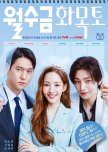
It’ll pass the time…
Look, it’s not that this drama is bad it’s just really not that good. If you’re in a lacklustre mood and want to curl up on the sofa in your jarmies and stuff your face with chocolate whilst lamenting the state of your work life, then this show might be a sucky blanket to help you through the week.To describe this as a comedy is not really accurate. Yes there are a few smile moments, but this is a romantic drama with a classic romcom set-up that takes itself seriously. And that is both its strength and unfortunately its weakness.
The script isn’t quite up to delivering the impact which the story demands. It’s sitting on an edge of seriousness but trying to keep itself light. It’s not sure whether it’s a drama or a romance and consequently the more serious themes sit uncomfortably with the sometimes superficial and cliché dialogue. It really wants to explore the characters but doesn’t have sufficient skill or gravity to give them the required depth and it turns into a long drawn out inching forward.
Although the Single Life Helper starting point was original and interesting, the plot gets caught up in trying to make the standard chaebol arranged marriage theme fit with it and it doesn’t quite work. You could see the plot twists in episode 13 from 15 episodes previously and there is also insufficient plot to give the story dynamic impetus.
The antagonists are stereotypical and not carefully enough drawn, with a single mode of operation that conveniently causes trouble. Neither are they important enough to have any real impact. For most of the drama they hang around like flies, creating an annoying buzz and then get unconvincingly swatted at the end.
There are three ok leads, but they could have been better given more in the script. The best performance came from Kim Jae Young as Kang Hae Jin, who had the most opportunity to create a rounded character. Park Min Young dusted off her acting skills again and displayed a little of her talent but nothing outstanding and she was beaten in the showing-credible-emotions stakes by Jin Kyung as Ji Mi Ho. I’ve seen better performances from Go Kyung Pyo who tried to do something with his character, but acting the classic buttoned-up ML is always a challenge. (My vote for the best rendition of this character type goes to So Ji Sub in “The Master’s Sun”.) Kang Hyun Suk was the best of the supporting cast with a lovable performance as Woo Gwang Nam.
What my rating means: 7+ A watchable drama, but nothing exceptional. Good enough to qualify for the race, but finished with the pack. The sort of thing that promises more than it delivers.
Was this review helpful to you?

In the domestic sphere it rocks, in the palace environment it rolls - right under the bus…
I watched both parts together and will only write one review. The score I gave to part one is 8.5, but I can’t get anywhere near that for the second half.Let’s start with the positives, because there are a plenty of them. The so-called “good” characters are both varied and interesting and some of them have interesting character arcs. However, the “bad” characters were unfortunately all cookies cut from the same bitter, extreme and bitchy dough and were interchangeable and forgettable, which rendered parts of the rambling plot incomprehensible. But let’s not get to that yet. Continuing on the good things.
The wonderful humour in part one that was such a delight. The writer excelled in bringing out the nuances within the everyday interactions. As social commentary it is second only to “Heard it Through the Grapevine”. It provided a balance and a foil for the more serious scenes. But alas, where was it in the second half. It died a death along with numberless others, who were victim to the bloodlust of Zi Sheng. In the second half, it felt as though the writer was really our of their depth.
There were some excellent performances from a very large cast. In particular I would single out, Zeng Li as Xiao Yuan Yi (Shao Shang’s mother), Cao Xi Wen as Consort Yue Fei, and in the latter stages Leo Wu stepped up as Zi Sheng.
I liked the costuming for the show. Particularly the military uniforms. And the fact that the early period meant simpler fabrics and elegant lines. The setting too was a great backdrop for the drama, with its huge barren landscapes and harsh realities, in which small oceans of comfort and civilisation nestled.
Okay, I’m going to leave the good there. There’s plenty of reviews that drool over Leo Wu on a horse and such similar attractions. Let’s get out the scalpel.
Save the best to last. There’s a reason this is said. It’s great advice: build, retreat, build higher, rest, build higher, hold, then run vertically to your epic killer blow. Unfortunately the second part of this drama completed the whole course in the first third and then had nowhere to go except repeat until the end. That’s partly the difficulty of writing a 40-hour drama. That’s a lot of story to weave together using original ideas. Okay, to be fair, they split it down the middle, so 20 hours of drama. But, how many times can you watch Leo Wu leap from his horse to save the day/girl at the last possible second. Once at the end would have been impressive, twice would be forgivable, three times unfortunate, but five-plus times? Tbh you’ve seen it all before and there’s no tension only predictability. It was a cast of thousands and fairly minor characters kept blowing up along the route to provide a foil and yet another opportunity for our knight in leather armour. There were so many of them, that I had difficulty remembering what their story arc had been (twenty episodes earlier) that was causing them to seek revenge at this point.
This is a drama built on backstory. Now backstory is never easy to handle. You are in with a chance if it’s the backstory of one of the main characters. But when you are asked to get invested in the backstory of people who either don’t appear in the drama, or who are minor characters overall, and on top of that, you are not even “shown” it, but “told” it in unlikely monologues and stilted “conversations”, then you’re really wading through porridge. Not only was it confusing just to have names without faces half the time, but it was boring too. There was nothing much to generate emotional investment and Leo Wu was on his own boiling up all that vitriol. Admittedly, the scenes when it spilled out were chillingly good and really showcased his acting chops.
To sum up plot-wise, as this rambling, fragmented plot played out I felt incredulity leaking from the pot until I was up to my knees in it, then at some point the swirling waters closed over my nose and mouth and I had to force myself to float on it to the end as I was in danger of drowning in the underground tomb and burning village.
In terms of the characters, the arcs for the male and female leads were largely unconvincing. I was willing to go along with Shao Shang learning to trust Zi Sheng, although the set-up for the punishment scene that clinched the deal was pretty unbelievable. But the changes in the later stages in their relationship had no real credible basis to them. Tbh, the character of Zi Sheng had so many red flags that to me he was unredeemable. The writer was trying to meld together two stubborn and flawed characters by melting them in the forge of saccharine romance tropes. It didn’t work.
Was this review helpful to you?
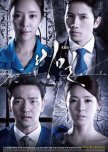
Day-time TV eat your heart out! Watch and learn...
By heck they don’t make makjang like they used to! You have to go to J-drama now if you want to find this level of hot, sweaty testosterone on display. Forced kisses, women dragged around, and all things beyond and in-between (there’s even a good splash of Master/slave in there). Beware, shrinking violets, this one is not for you. But if you are of a more robust mindset and like your melodrama vicious, toxic, wet and wailing, then this will absolutely be the ticket.Who else but Ji Sung could be evil incarnate one minute and hot stuff the next, whilst doing a brilliant impression of a belligerent, sulky teenager not getting his own way. Hang Jung Eum takes on the role of the suffering angel with the patience of a snail, the heart of a sticky chocolate pudding and the destiny of a lump of rancid fat. Normally it’s an ahjumma that parades a face like a slapped arse, but here it’s Bae Soo Bin who takes on that role and plays it with relish. As for Lee Da Hee, it’s a masterclass in “Hell hath no fury like a woman scorned”!
The plot is fairly straightforward and guessable from the get-go, but it still leads you a dance where all the characters are given ample opportunity to balance on a moral knife edge and come up wanting. Prepare yourself for gut wrenching twists, heart rending suffering, and miraculous character transformations. The pain and torment of the innocent (and not so innocent) is offered up as a sacrifice to cruel fate and revenge, and the slings and arrows of outrageous fortune rain down on everyone. And yes, those arrows are pretty outrageous. In anguish, in fortitude, in sickness and in revenge, it’s all supercharged and in there. “No matter how I try to erase you like an incurable disease from my heart” (actual song lyrics, end Ep13). What a wonderful, explosive mixture it is.
It spins along at a rollicking pace, with a touch of middle age sag that tightens up again later. And it all unfolds along well-worn tracks like a pilgrimage to the Wailing Wall. But, by gosh, it’s a thrilling, compulsive ride.
And of course it’s full of characters that in real life you’d give a twenty mile berth to in order to avoid touching them with a barge pole. In fact, all of them wave so many red flags it’s like being at a communist party rally. But hey, this is makjang. Just deserts will be got, and the twisted will be stretched on tenterhooks until they become straight, then woven with remorse and sacrifice until they become the very fabric of the community. Just roll with it and you’ll have sooo much fun.
How can I not give it an 8, for being a perfect example of outrageous, sumptuous makjang, in all its over-blown, toxic glory. Or is it perhaps a 3, for breaking every woke rule in the book. Only you know yourself well enough to decide.
Ahhhh, thanks “Secret” for the explosive laughter. Nothing like it to warm the cockles of your heart and cheer you up every time. That’s when you’re not sobbing of course. Cue violins and angelic choirs…
NB Currently (Jan 2025) showing on VIKI under the title “Secret Love”
Was this review helpful to you?

A cerebral appreciation rather than an emotional enthusiasm. An intelligent watch.
If court intrigue is your thing, then you won’t get better than this. Half of the script is concerned with the delicate manoeuvring required to send indirect layered messages that have different meanings to different people, whilst the other half is concerned with bringing about the downfall of your enemies whilst keeping your hands clean. It’s an elaborate dance in which no-one touches anyone directly, but guides their steps by blocking or revealing pathways. A sinister pavane where one wrong step can lead to a blind alley, death and disaster.In a world where there is no real warmth, compassion or security,
emotional manipulation is raised to an art form and the devastating results displayed. This is contrasted with the cool, rational manoeuvring of the female lead, abetted early on by the Grandmother, which is outwardly praised as moral righteousness, but owes a great deal to power playing and more subtle manipulation. It is scheming that uses the predictable weaknesses of others to bring about their downfall. It is revenge served ice cold and does the moral character of our heroine no real favours.
In this suffocating world of just a handful of families, there is a sense of the overbearing weight of society and the machinations necessary to survive in it. In particular it focuses on the role of women and the means by which they can find and assume power, though ostensibly in a powerless situation.
The world of the men is less well crafted and believable than the domestic setting of the women. Whereas the female parts had an almost slice of life feel, the script for the men is not edgy enough. In the main their lines and performances are far too soft and “nice” for the characters that are being portrayed. No such sleight of hand was shown with the female characters and they emerge much more forcefully and credibly, triggering ambivalence in the viewer.
The overall complexity is down to a magnificent script which is full of subtlety and cleverness. Even in translation there is a clear sense of having to read between the lines and there is plenty of brainwork to be done to fully appreciate all the undercurrents. This is not the sort of thing that you approach in your pyjamas, curled up on the sofa half asleep after a long hard day at work.
I had a problem with the casting of Feng Shao Feng as the ML, I thought he was too old for the part. Unlike Kim Tae Ri who dropped some 13 years in “25-21” and totally convinced me that she was a teenager using her body language and mannerisms, FSF’s acting didn’t convincingly portray the energy of youth (my calculation was that the character was in his late twenties, early thirties at most), or the hard core determination that was his stated character. He was unconvincing as a reformed ne’er do well and ruthless soldier with a streak of rashness, and seemed more like a pleasant, middle aged burgher.
All praise though to Zhao Li Ying who was hardly ever off screen and put in a great performance as Ming Lan—the wolf in sheep’s clothing. She was more than ably supported by the other cast members and there was plenty of character differentiation to give a credible feeling of a real world dynamic. it is really fair to say that this is a magnificent ensemble piece.
It has that epic quality of “War and Peace” with a large cast of characters, grouped in families, that wonder on and off the stage when required to inch the plot forward. Everything takes a circuitous route, even, or perhaps especially, the romance. But unlike most examples, the obligatory indirectness does not feel manufactured here but natural. And the relationship of the two leads is a joy.
It was designed to be shown once a day and the slow pace of daily life would really suit this unfolding. It’s not the sort of show that you can easily binge and is better taken in smaller bites of a few episodes at a time. Because the pace is so slow the plot is almost fully realised, but occasionally there were important scenes that were papered over or not shown, leaving an unnecessary sense of dissatisfaction. Neither was I a fan of how the complete final plot line was constructed.
On the down side, it is very long and repeatedly showcases the same type of scenario. I must admit that after episode 50 I was getting a little weary and had to muster up some determination to continue. Not least because it needed a bit more variation in pace and setting to liven up the overwhelmingly cerebral work that I was doing and the plot also became fragmented and uncohesive. But it picked up about ten episodes later and proved, yet again, it wasn’t afraid of the dark side. Displaying both the physical and the mental savagery necessary to survive and thrive. But to be honest, I was flagging and found the last haul to the end a bit of an effort. I think that splitting it into two series would have helped me considerably.
Although the historical aspects are well realised, the military settings in the story are less credible and it obviously never had the budget to be an action spectacular. In the midst of such realism however, the impossible sword fights, miraculous escapes and sporting competitions (which all end without a hair or a belt out of place) stand out as somewhat ridiculous. But heh, I’m not going to nitpick here when the overall quality is good.
Cinematography-wise, the slice of life approach is beautifully realised in muted colours and subtle lighting that help to give the feeling that you are a part of the family. In the hands of lesser cinematographers and lighting designers, filming in dark interiors can appear dull and murky, but so skilful is the lighting, that the faces are always highlighted in a way that seems natural without disturbing the muted note of the surroundings. The bright colours of the costumes also lift the atmosphere and provide contrast to the browns and greys of the environment.
The soundtrack is simple and effective, supporting the historical aspect without being too literal or noisy. And a shout out to the translation team, who took the time to give helpful comments all the way through.
What my rating means: 8+ A great drama with interesting content and good writing, direction, acting, OST, cinematography. But didn’t quite have the requisite sparkle to bump it into my all-time fave list. Worth watching.
Was this review helpful to you?

The Makanai: Cooking for the Maiko House
4 people found this review helpful
Oversweet nostalgia, very tastefully executed
More in the style of a fly on the wall documentary, this sensitively scripted and filmed piece follows two nascent young women into the world of the Maiko. It has an art-house style that favours snippets of ordinary conversation to create the ambiance and atmosphere of their life rather than “telling” any type of story.It’s a piece to immerse yourself in and it creates a glimpse into a secluded world where time has attempted to stand still. A world of women which is gentle, ordered, bounded, protected and essentially safe. But it has a cost and one of the characters says, “I can’t imagine how us girls could ever live outside of this city”. The restrictions imposed are like the inhibiting clothing and hairstyles, superficially attractive but stultifying, requiring a real-life sacrifice from the participants which is featured in the story. Overall though, the drama puts a glaze over their experience, effectively creating something sugary and homely, much in keeping with the nostalgia that inhabits their profession.
There are minor frictions but don’t look for antagonists creating problems to solve. The characters are universally pleasant and even the more troubled teenager is hardly abrasive. So there is no real depth here and it suffers in my opinion from being overly sweet.
The drama does not seek to contextualise the profession in terms of modern society and virtually all of the paying clients are shown as Japanese middle-aged men, representing a staid conservatism that reflects the stated desire to preserve the past as cultural heritage. There is none of the modern catering for tourists here, even though the photo opportunities when the Maiko are out on the streets is highlighted. Neither is there any discussion or concern shown for the future of such an expensive pastime that services a very small, select clientele.
Food is used as metaphor within the show and each episode features a separate dish. It was a deliberate design feature as one of the main characters becomes the cook and the series is named for that role. As I am fairly ignorant of Japanese cuisine and culture in general, there were abundant occasions where I felt that I was missing the references which were not explained. This would point to the drama being written for a domestic market rather than international consumption.
The cinematography uses as close to natural light as possible often creating the feeling of cloudy days and dim interiors and keeps the modern world of bright lights and kitchen conveniences at bay. The colour palette is very muted and this lifts the contrasting brightness of the maiko’s clothing, emphasising their uniqueness and separateness from the world around them.
Although I did not personally fall in love with this drama, the quality is undeniable, hence the rating.
What my rating means: 8+ A great drama with interesting content and good writing, direction, acting, OST, cinematography. But didn’t quite have the requisite sparkle to bump it into my all-time fave list. Worth watching.
Was this review helpful to you?

Sucky blanket romance
A sucky blanket of a romance, with all the normal tropes of love triangles and quadrangles and anything up to dodeca-angles; absent family; hair-pulling fights; past encounters; ML going from distant cool to close warm; men facing off like boys; and of course all the standard clichés of country life. The plot is a well-worn trail of the obvious, so you don’t even have the stress of wondering what’s going to happen, even though they have to cram it in the last episode.One of the benefits of country shows is at least there’s less PP! Unfortunately though it does step in and manage to kill the mood… ah I really should get over it, but it’s done sooo clumsily here.
Look there’s nothing original, everything is bland, innocuous and inoffensive (and that includes the chemistry, or lack of it) but the short half-hour format makes it an ideal watch for those times when you’ve come home exhausted and all you want to do is curl up in front of the fire and veg out with something totally predictable, brainless, sweet and cosy.
What my rating means: 7+ A watchable drama, but nothing exceptional. Good enough to qualify for the race, but finished with the pack. The sort of thing that promises more than it delivers.
Was this review helpful to you?


 3
3 3
3




















